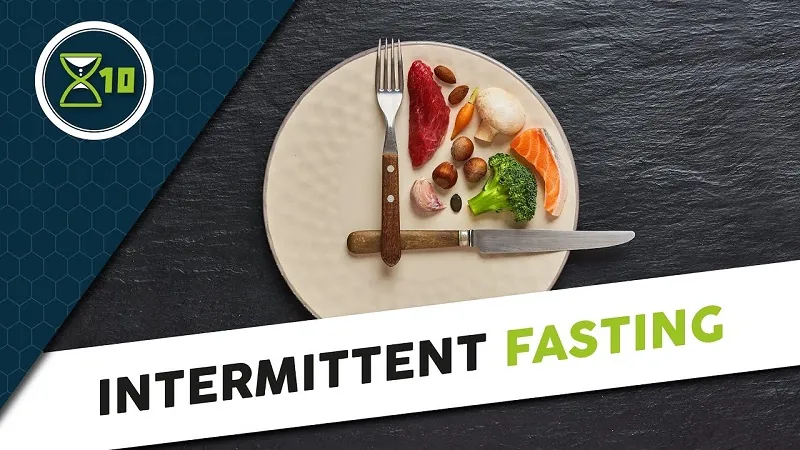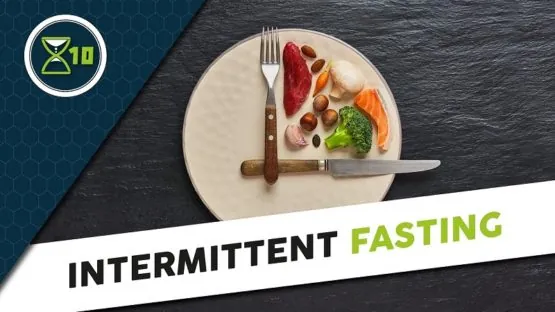In this episode of X10, we discuss the concept of intermittent fasting: what it is, how it differs from caloric restriction, whether or not it can make you live longer or healthier, and the methods of going about it.
Script
This is part of a series of videos on diet and longevity. Last time, we talked about caloric restriction – eating fewer calories than normal. That’s tough to keep up, so many people prefer an easier-sounding alternative: intermittent fasting. But does intermittent fasting work, and if so, how should you do it? Stick around to find out.
Welcome to X10, your one-stop YouTube show for all things life extension. Learn the science, keep up with new research, and live longer and healthier. To get updates from X10, click the red button below to subscribe, and don’t forget to hit the bell icon and select “all notifications”.
The idea behind intermittent fasting comes from the fact that rodents in caloric restriction experiments quickly ate all of the food they were given. That meant that they weren’t just getting fewer calories; their eating pattern also changed to a single large meal followed by a long fast. So, the improvements in these experiments might have been because of the reduction in calories or because of the unusual eating pattern. To find out, scientists did experiments to separate the effect of fasting from eating fewer calories.
For example, animals would be allowed to eat as much as they want but only during a window of a few hours a day. The rest of the time, they had to fast. Broadly speaking, experiments with nematodes, fruit flies, and rodents showed that many of the health and lifespan benefits of caloric restriction also happened on a fasting diet. Yeah, “broadly speaking”. Why can’t the answer ever be a simple “this just works”? Well, biology is complicated. In mice, one study found that the effect of intermittent fasting depended on how old the mice were when it started. In fruit flies, one fasting diet increased lifespan, but another didn’t.
That’s the other complication: what exactly is “intermittent fasting”? There are lots of different ways to do it, and different experiments take different approaches. For example, alternate-day fasting means eating normally one day and then fasting or eating very little the next day. But there are also diets with a different number of fasting or feasting days. The fruit flies which lived longer were on a “2:5” diet: two days feasting, five days fasting.
The diet that didn’t work for fruit flies was a “time-restricted diet” – unlimited food during part of the day and nothing for the rest of the day. Even though they didn’t live longer, another experiment showed that a similar diet improved the flies’ muscle performance and lessened age-related cardiac dysfunction. None of that changes the fact that, as we’ve said before, fruit flies aren’t humans. And even though the results in flies and mice and rats and nematodes are complex enough to be a bit unclear, the overall trend is encouraging. But the real question is, what is the effect of intermittent fasting in humans?
Unfortunately, we don’t have a good answer to that. Like the experiments in model animals, human studies pick from a smorgasbord of intermittent fasting diets, so it’s hard to generalize. The studies are also often limited to a specific group of people. For example, intermittent fasting seems to reduce weight and improve the health of overweight and obese people, but it’s not clear if that holds for people who aren’t overweight or obese.
A different study found that eating one meal a day led to a reduction in fat mass but also an increase in blood pressure and LDL and HDL cholesterol. There might also be differences related to sex, age, or general fitness, and all of this variability is compounded by the fact that human studies have generally small sample sizes and run for only a short while – usually a few weeks or months.
The logic behind intermittent fasting is appealing. The idea is that a long period of fasting causes your body to flip a metabolic switch, shifting its energy source to stored fat instead of sugar. That switch affects lots of other pathways, and there’s even evidence that it could reduce the risk of developing Alzheimer’s disease. That sounds great, but it’s still too soon to say whether it actually works. We need large, randomized, controlled trials to test the effect of intermittent fasting – and we need to agree on which diet to try!
That’s all for now! If you’d like to get notified about new X10 videos, subscribe and remember to click the little bell icon. And don’t forget to like the video and share it if you found it useful. Once again, a big thanks to the Lifespan Heroes. This show is possible thanks to their crowdfunding support. If you’d like to become a Lifespan Hero to support X10 and Lifespan.io, head over to lifespan.io/hero and make a pledge.



